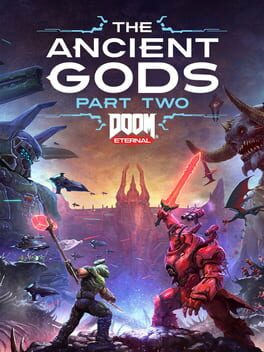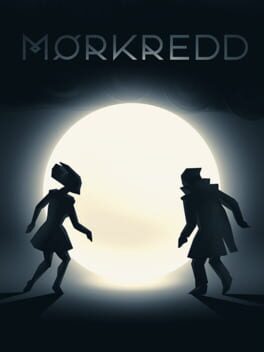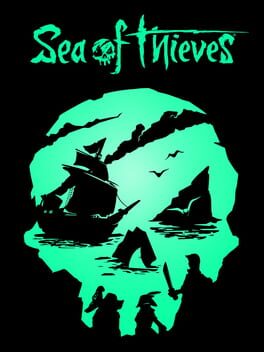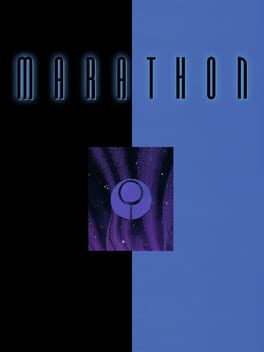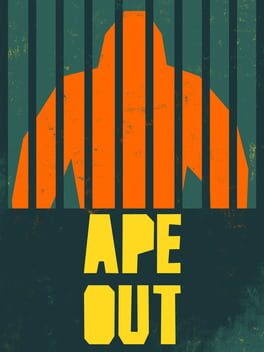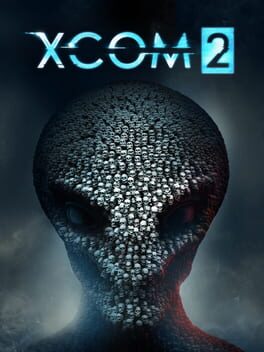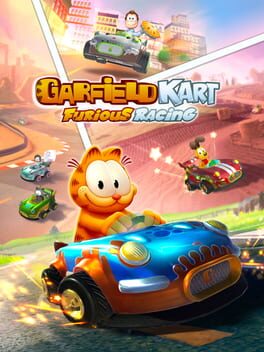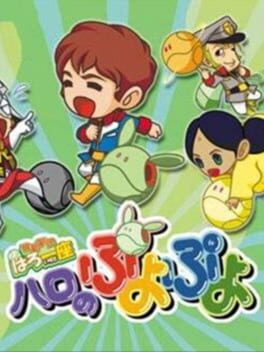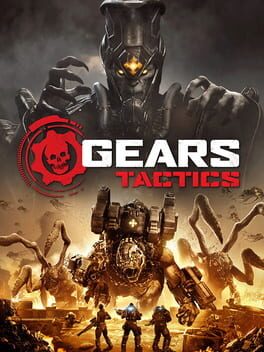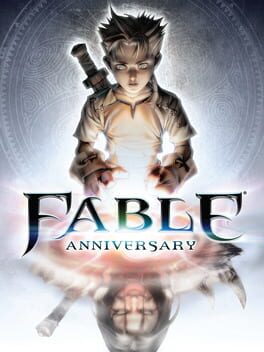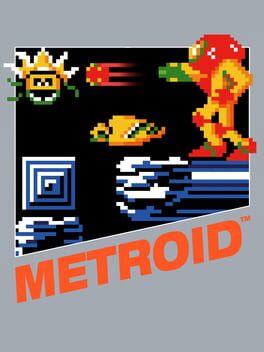HaroKid
The Ancient Gods Part 2 is a disappointing follow-up to the excellent Part 1, failing to deliver both the epic scale and satisfying ending that was promised.
Ancient Gods Part 2 offers exciting new enemies, and some new tech to deal with the old enemies. Tweaks to player information on stunned enemies, alternative ways to deal with formerly more-irritating-than-fun enemies, and new slots for the existing sandbox to fall into are all smart and welcome decisions.
The visuals are as excellent as ever, which is no surprise, and though the environments are all new to Doom Eternal, they're notably less dramatic than either the base game or the Ancient Gods part 1.
This is also felt in the combat - Somehow, Ancient Gods Part Two is incredibly easier than the first. This is fine, as difficulty options allow you to ramp up or down the difficulty in either case, but it lets down the finality of the drama the story attempts to tell.
Firefights are not nearly as intense, but they are still quite fun. The Ancient Gods Part 2 is unfortunately let down by an obnoxious final boss fight regardless of difficulty option (Let me fight 2 marauders simultaneously again any day instead), and the story itself whimpers to an unimpressive end.
While the first half of The Ancient Gods felt promising and exciting, the second half has me wishing iD software skipped any story DLC and instead kept the extra story to another Doom Sequel.
Ancient Gods Part 2 offers exciting new enemies, and some new tech to deal with the old enemies. Tweaks to player information on stunned enemies, alternative ways to deal with formerly more-irritating-than-fun enemies, and new slots for the existing sandbox to fall into are all smart and welcome decisions.
The visuals are as excellent as ever, which is no surprise, and though the environments are all new to Doom Eternal, they're notably less dramatic than either the base game or the Ancient Gods part 1.
This is also felt in the combat - Somehow, Ancient Gods Part Two is incredibly easier than the first. This is fine, as difficulty options allow you to ramp up or down the difficulty in either case, but it lets down the finality of the drama the story attempts to tell.
Firefights are not nearly as intense, but they are still quite fun. The Ancient Gods Part 2 is unfortunately let down by an obnoxious final boss fight regardless of difficulty option (Let me fight 2 marauders simultaneously again any day instead), and the story itself whimpers to an unimpressive end.
While the first half of The Ancient Gods felt promising and exciting, the second half has me wishing iD software skipped any story DLC and instead kept the extra story to another Doom Sequel.
2020
2019
Its easy to be cynical of just about every aspect DEATH STRANDING has on offer, but against all odds it is an extremely charming, emotional, and satisfying game.
At some point it is tempting to ask "Why is this not a movie?", or to reduce it to a "walking simulator" - Only fair considering the sheer magnitude of cutscenes on offer, and the gameplay is quite literally walking, but DEATH STRANDING as a whole has so many quirks and habits in stylization and storytelling that make it something you could not experience in any other medium, and something not experienced before in video games.
The level of detail, sense of scale, amount of self-aware charm and absurdity elevate DEATH STRANDING from a generic open world title to something that oozes uniquity. It can be frustrating, demanding, confusing, or just straight up goofy, but not once did it bore me. Likewise it can be meditative, immersive, intimate, impressive, and genuinely hilarious.
The social collaboration aspect of the structure building is immensely satisfying and relieving, and the strategic planning for each other-wise-would-be-dull fetch quest is stimulating. The grand plot of the game is nonsense in spite of every detail being over-explained to exhaustion, but the performance of the cast and exceptional direction keep me invested anyway, and often leads to genuinely emotional moments that wow, even if they can be undercut by relentless exposition mere seconds later.
The product placements (There's more than one) should be an artistic compromise, and I don't feel its wrong to criticize those aspects, but something about the sheer absurdity of them miraculously sells me on the tone of the world and its storytelling just a little bit more.
I find it likely I could read just about any criticism of DEATH STRANDING, understand it, probably agree with it, and still somehow love the game for it:
The dialogue is corny, the game is overlong and ends about 15 times, the combat is primitive, off-road vehicle handling is atrocious, the best structures are the ones that circumvent the main gameplay, The game is endless "Go From Point A to Point B" bookended by hours of cutscenes, most of the boss fights aren't great, etc., etc.
But at the end of the day, the only disdain I have towards the game without an asterisk of some kind is Troy Baker's gaudy and unlikeable-in-every-scene Higgs.
DEATH STRANDING is the first Hideo Kojima game I've experienced and I'm only looking forward to more.
DEATH STRANDING is entirely overconfident in itself to a degree that is almost impossible for me to not admire. If nothing else, it is the most unique game that I've had the pleasure of playing.
At some point it is tempting to ask "Why is this not a movie?", or to reduce it to a "walking simulator" - Only fair considering the sheer magnitude of cutscenes on offer, and the gameplay is quite literally walking, but DEATH STRANDING as a whole has so many quirks and habits in stylization and storytelling that make it something you could not experience in any other medium, and something not experienced before in video games.
The level of detail, sense of scale, amount of self-aware charm and absurdity elevate DEATH STRANDING from a generic open world title to something that oozes uniquity. It can be frustrating, demanding, confusing, or just straight up goofy, but not once did it bore me. Likewise it can be meditative, immersive, intimate, impressive, and genuinely hilarious.
The social collaboration aspect of the structure building is immensely satisfying and relieving, and the strategic planning for each other-wise-would-be-dull fetch quest is stimulating. The grand plot of the game is nonsense in spite of every detail being over-explained to exhaustion, but the performance of the cast and exceptional direction keep me invested anyway, and often leads to genuinely emotional moments that wow, even if they can be undercut by relentless exposition mere seconds later.
The product placements (There's more than one) should be an artistic compromise, and I don't feel its wrong to criticize those aspects, but something about the sheer absurdity of them miraculously sells me on the tone of the world and its storytelling just a little bit more.
I find it likely I could read just about any criticism of DEATH STRANDING, understand it, probably agree with it, and still somehow love the game for it:
The dialogue is corny, the game is overlong and ends about 15 times, the combat is primitive, off-road vehicle handling is atrocious, the best structures are the ones that circumvent the main gameplay, The game is endless "Go From Point A to Point B" bookended by hours of cutscenes, most of the boss fights aren't great, etc., etc.
But at the end of the day, the only disdain I have towards the game without an asterisk of some kind is Troy Baker's gaudy and unlikeable-in-every-scene Higgs.
DEATH STRANDING is the first Hideo Kojima game I've experienced and I'm only looking forward to more.
DEATH STRANDING is entirely overconfident in itself to a degree that is almost impossible for me to not admire. If nothing else, it is the most unique game that I've had the pleasure of playing.
2019
Control is a sort of big-budget take on an SCP game and has a few gameplay and story hooks just interesting enough to keep you going until the game abruptly ends.
The storytelling of Control is unconventional, and the tone of the world successfully sells itself, but I find it leaves a good chunk to be desired in substance - While some threats are totally alien or horrific, the vast majority of enemies are "Guy with gun, but red", and doesn't quite live up to what I would expect from a secret bureau that attempts to find and contain paranormal beings or objects that bend reality.
This is mostly fine, because the gameplay and powers of Control are quite satisfying to master and chain together combos with, provided the opportunity. Once again however, I find myself wishing that Control pushed this aspect of the game more extremely, as there often isn't much preventing me from sitting at the end of any given room taking potshots at enemies for the entire encounter. I know the fun is there to be had, but in a way I have to force myself to go out and have it by experimenting with different powers and weapons when there is seldom an incentive to. In that sense, the combat can feel dull or even dumb, which is a letdown.
The animations are just-Good. Not bad, but nothing groundbreaking. Visually where Control excels is in a solid art direction and an immersive-but-not-overbearing utilization of ray tracing technology. Control is a fun game, but even if it wasn't, it would be an excellent tech demo.
The game's story just sort of ends and feels incomplete, as if to say "Buy the DLC to see what happens next!", so in a similar fashion, I'm gonna end the review here without any sort of conclusion of substance.
The storytelling of Control is unconventional, and the tone of the world successfully sells itself, but I find it leaves a good chunk to be desired in substance - While some threats are totally alien or horrific, the vast majority of enemies are "Guy with gun, but red", and doesn't quite live up to what I would expect from a secret bureau that attempts to find and contain paranormal beings or objects that bend reality.
This is mostly fine, because the gameplay and powers of Control are quite satisfying to master and chain together combos with, provided the opportunity. Once again however, I find myself wishing that Control pushed this aspect of the game more extremely, as there often isn't much preventing me from sitting at the end of any given room taking potshots at enemies for the entire encounter. I know the fun is there to be had, but in a way I have to force myself to go out and have it by experimenting with different powers and weapons when there is seldom an incentive to. In that sense, the combat can feel dull or even dumb, which is a letdown.
The animations are just-Good. Not bad, but nothing groundbreaking. Visually where Control excels is in a solid art direction and an immersive-but-not-overbearing utilization of ray tracing technology. Control is a fun game, but even if it wasn't, it would be an excellent tech demo.
The game's story just sort of ends and feels incomplete, as if to say "Buy the DLC to see what happens next!", so in a similar fashion, I'm gonna end the review here without any sort of conclusion of substance.
2019
2018
Sea of Thieves is a delightful pirate playground that's immersive and ripe for emergent player-driven stories.
Player experience will vary extremely from an individual to another - Each ingredient is fairly straightforward on its own, but thrive vividly when combined in numerous combinations. At the base level, Sea of Thieves is endless busy-work without much in the way of game-modifying progression, and so relies heavily on the fun of happenstance on any given session.
The game actually does a very good job of invisibly guiding these happenstances quite often in crews of 3 or 4, but may be more inconsistent with lower player counts. Player interaction woven with seemingly random events, and finding bonus treats or breadcrumb trails along the way layered on top of the base voyages you and your crew set sail on form the entirety of Sea of Thieve's constantly unfurling gameplay loop, and there's not much quite like it on the market today.
I also find the lack of vertical progression to be a boon - Its refreshing when compared to other games on the market, and also makes Sea of Thieves a game that's never daunting to return back to from a hiatus, never a need to "catch up" with established friends or foes who have played since launch. Perfect for yearly revisits.
Sea of Thieves gives you all the pieces for a thrilling and flavorful contained sandbox every time you play.
Player experience will vary extremely from an individual to another - Each ingredient is fairly straightforward on its own, but thrive vividly when combined in numerous combinations. At the base level, Sea of Thieves is endless busy-work without much in the way of game-modifying progression, and so relies heavily on the fun of happenstance on any given session.
The game actually does a very good job of invisibly guiding these happenstances quite often in crews of 3 or 4, but may be more inconsistent with lower player counts. Player interaction woven with seemingly random events, and finding bonus treats or breadcrumb trails along the way layered on top of the base voyages you and your crew set sail on form the entirety of Sea of Thieve's constantly unfurling gameplay loop, and there's not much quite like it on the market today.
I also find the lack of vertical progression to be a boon - Its refreshing when compared to other games on the market, and also makes Sea of Thieves a game that's never daunting to return back to from a hiatus, never a need to "catch up" with established friends or foes who have played since launch. Perfect for yearly revisits.
Sea of Thieves gives you all the pieces for a thrilling and flavorful contained sandbox every time you play.
1994
Marathon offers some neat atmosphere, and was notable for being one of the first few shooters (alongside System Shock) to include mouselook aiming.
Aside from that, there's nothing about Marathon that has aged particularly well, nor is it particularly worth visiting in modern times outside of a curious look into the roots of Halo and Bungie's history with first person shooters.
Nothing about the enemies or weapons is exciting, the level design is unengaging, and the controls have somehow aged awkwardly.
Unfortunately, Marathon is just another one of those weird niche shooters that doesn't have the modern luxury of an excellent source port.
Aside from that, there's nothing about Marathon that has aged particularly well, nor is it particularly worth visiting in modern times outside of a curious look into the roots of Halo and Bungie's history with first person shooters.
Nothing about the enemies or weapons is exciting, the level design is unengaging, and the controls have somehow aged awkwardly.
Unfortunately, Marathon is just another one of those weird niche shooters that doesn't have the modern luxury of an excellent source port.
2019
2016
XCOM 2's combat is just as solid as before, but its sloppy and irritating tutorials that persist across the game's clunkier-than-ever grand strategy elements make it feel like a step or two back from its predecessor.
XCOM 2 is also aesthetically uninteresting - Gone is the campy layer of that classic, retro-futuristic UFO science fiction flavor in the game's most prominent alien footsoldiers, and in place are large swaths of generic Gamer-PC looking foes that may as well not be alien at all.
The sum of XCOM 2's parts is an unfocused mess, carried by elements that don't feel dramatically improved upon from it's predecessor. The big question: Why play XCOM 2 over XCOM 1?
XCOM 2 is also aesthetically uninteresting - Gone is the campy layer of that classic, retro-futuristic UFO science fiction flavor in the game's most prominent alien footsoldiers, and in place are large swaths of generic Gamer-PC looking foes that may as well not be alien at all.
The sum of XCOM 2's parts is an unfocused mess, carried by elements that don't feel dramatically improved upon from it's predecessor. The big question: Why play XCOM 2 over XCOM 1?
2020
Gears Tactics is another product of the western tactical RPG renaissance, offering some intriguing twists on the XCOM template, though the Gears wrapper almost lets it down.
The core gameplay is satisfying, which is unsurprising, and feels like an incredibly faithful adaptation of the mechanics of the primary 3rd person shooter franchise - Audio barks and sound design cues are all very familiar feeling, and Gears Tactic's expanded and flexible action economy makes stringing together combos to elongate your turns uniquely satisfying in the genre while also recalling the pace of ducking in and out of cover from other titles in the franchise.
Gears Tactics also offers a lot of progression and customization when compared to its XCOM roots, which is always welcome, but the amount you might appreciate these options might rely on how invested you are in the world and aesthetic of Gears of War to begin with. Even as a casual Gears of War fan who has a solid admiration of Gears of War 3 and Gears 5, there's nothing that Tactics brings to the table story or atmosphere-wise to keep me interested in completing a campaign. None of the story or the main cast of characters are very compelling, which is probably fine for Gears, but they also lack any tacky charm on the surface.
The audio and visuals are top notch, but there's no thematic intrigue to keep me on my toes - No fear of the unknown, no attachment to my troops or tension of losing them, no urgency to keep me constantly thinking multiple missions ahead.
In a sentence, It's all "XCOM", and no "Enemy Unknown".
The core gameplay is satisfying, which is unsurprising, and feels like an incredibly faithful adaptation of the mechanics of the primary 3rd person shooter franchise - Audio barks and sound design cues are all very familiar feeling, and Gears Tactic's expanded and flexible action economy makes stringing together combos to elongate your turns uniquely satisfying in the genre while also recalling the pace of ducking in and out of cover from other titles in the franchise.
Gears Tactics also offers a lot of progression and customization when compared to its XCOM roots, which is always welcome, but the amount you might appreciate these options might rely on how invested you are in the world and aesthetic of Gears of War to begin with. Even as a casual Gears of War fan who has a solid admiration of Gears of War 3 and Gears 5, there's nothing that Tactics brings to the table story or atmosphere-wise to keep me interested in completing a campaign. None of the story or the main cast of characters are very compelling, which is probably fine for Gears, but they also lack any tacky charm on the surface.
The audio and visuals are top notch, but there's no thematic intrigue to keep me on my toes - No fear of the unknown, no attachment to my troops or tension of losing them, no urgency to keep me constantly thinking multiple missions ahead.
In a sentence, It's all "XCOM", and no "Enemy Unknown".
2014
Horrendously Ugly, Numbingly Simple, Frustratingly Clunky, and Surprisingly Racist - Fable Anniversary with my partner was a blast, for mostly the wrong reasons. Its... Complicated.
Not the game, mind you - For how much Fable attempts to wear its ambitions on its sleeve, a vast majority of its numerous mechanics feel under-baked, unbalanced, and as though they could have been cut or heavily altered without much consequence.
Specifically, while mechanics such as the passage of time, your character's physical appearance being modified by your in-game habits, the entire morality system, and the way you interact with NPCs feel core to the Fable identity, there isn't a single one of those mechanics that hadn't already been done more successfully elsewhere, with some of those games even doing more than one of those at a time. Even though it's is an easy and almost unfair card to play, Star Wars: Knights of The Old Republic's NPC interaction and relationship building and physical appearance-altering morality system was already being praised a whole year before the original Fable's release.
Still, I suppose Shallow Gimmicks That Aren't Implemented All That Well is Fable's thing.
Fans of the franchise will note its charm and sense of whimsy and humor - Fable certainly attempts to be a humorous game, and to its credit it is genuinely funny at times.
BUT
The vast majority of the most hilarious parts of the game are certainly.... Not "unintentional" - that seems to not give proper credit to the game's systems - but Unscripted. Having my character become gradually more attractive or scary and hearing the citizens of Albion isn't very immersive, but it is ridiculously funny. Not being able to visit the local tavern without being bombarded by 8 NPCs all shouting the same 3 voice lines, sometimes in sync with one another, is a riot. The local barber being unable to run away in hysteric fear at max volume but still agreeing to give me one of 6 awful haircuts is a hoot-and-a-half. Accidentally one-shotting a friendly NPC because of the busted ass targeting system immediately causes an eruption of laughter, without fail.
It's awesome.
When the game isn't so absurd-its-entertaining, which is admittedly not very frequent, Fable really shows its colors of being a basic, janky, and butt-ugly RPG experience. Combat isn't particularly fun, nor is it at all balanced or functional. Romancing NPCs is a matter of spamming buttons until you get a black screen with the same awkward line of sex dialogue repeated more than thrice. Exploring the world map is functionally walking down endless forks and hallways bookended by loading screens, and while the levelling up/experience system feels fairly unique, there's a very limited amount of actually-useful applications of what you spend your progression toward.
As a moment-to-moment action video game, there's really not much to Fable. None of the characters or the story is even that complex, interesting, or even competently told. And even on a bigger scope, Fable is a limited amusement park for gimmicks by the bucketful that aren't satisfying on their own. But somehow, against all odds, despite so much of the game being dull and Not Good, the entirety of the experience has been one of my most memorable in recent times. It was almost hypnotic, and I constantly wanted to revisit it when I wasn't playing it, despite easily becoming frustrated, confused, or bored when I was playing it.
I haven't played the Original Xbox version, so I can't really comment on how faithful of a remaster Anniversary is, but a remaster of an original Xbox title on the Xbox 360 in 2014 - The Xbox One's sophomore year - is boggling, and the results don't really justify its existence either. Fable Anniversary is not only hands down one of the ugliest games I've ever played, but it also runs awfully, and is filled with technical problems. Whether these latter 2 qualities are retained from the original or not is irrelevant to me. They stink. Even if i can adjust to the nauseating art style, the performance and bugs can make Fable Anniversary a chore to play, saying nothing of the actual game design.
Lastly, the one other unforgivable, un-adjustable fault of the game is it's so blatantly racist attitudes and themes. These are so obvious to me, that I'm genuinely bewildered at the lack of discussion around it. Having maximum "good" morality results in your character having white skin, blond hair, and blue eyes, while having maximum "evil" morality results in the character having cracked black skin.
Typical morality-driven colorism aside, the base game's 3 non-white character consist of 2 rival characters that you spend the entire game proving your superiority over, while the 3rd is a stereotypically labeled "exotic" sex worker.
Less than uh, stellar representation. Even in 2004.
Fable's thematic focus on a heavily heteronormative, white male hero power fantasy might not make this very surprising for some, and it's certainly not the only area that Fable has not aged well in, it sticks out like a sore thumb and is incredibly unwelcome.
All in all, Fable is very much Not Great, but it is entertaining and intriguing just enough to have me wanting to check out the next 2 mainline games.
Certainly one takeaway I have is that Playground Game's upcoming Fable reboot has its work cut out for them, and surpassing on the original's ideas and themes should be no sweat for the Forza Horizon veterans.
Not the game, mind you - For how much Fable attempts to wear its ambitions on its sleeve, a vast majority of its numerous mechanics feel under-baked, unbalanced, and as though they could have been cut or heavily altered without much consequence.
Specifically, while mechanics such as the passage of time, your character's physical appearance being modified by your in-game habits, the entire morality system, and the way you interact with NPCs feel core to the Fable identity, there isn't a single one of those mechanics that hadn't already been done more successfully elsewhere, with some of those games even doing more than one of those at a time. Even though it's is an easy and almost unfair card to play, Star Wars: Knights of The Old Republic's NPC interaction and relationship building and physical appearance-altering morality system was already being praised a whole year before the original Fable's release.
Still, I suppose Shallow Gimmicks That Aren't Implemented All That Well is Fable's thing.
Fans of the franchise will note its charm and sense of whimsy and humor - Fable certainly attempts to be a humorous game, and to its credit it is genuinely funny at times.
BUT
The vast majority of the most hilarious parts of the game are certainly.... Not "unintentional" - that seems to not give proper credit to the game's systems - but Unscripted. Having my character become gradually more attractive or scary and hearing the citizens of Albion isn't very immersive, but it is ridiculously funny. Not being able to visit the local tavern without being bombarded by 8 NPCs all shouting the same 3 voice lines, sometimes in sync with one another, is a riot. The local barber being unable to run away in hysteric fear at max volume but still agreeing to give me one of 6 awful haircuts is a hoot-and-a-half. Accidentally one-shotting a friendly NPC because of the busted ass targeting system immediately causes an eruption of laughter, without fail.
It's awesome.
When the game isn't so absurd-its-entertaining, which is admittedly not very frequent, Fable really shows its colors of being a basic, janky, and butt-ugly RPG experience. Combat isn't particularly fun, nor is it at all balanced or functional. Romancing NPCs is a matter of spamming buttons until you get a black screen with the same awkward line of sex dialogue repeated more than thrice. Exploring the world map is functionally walking down endless forks and hallways bookended by loading screens, and while the levelling up/experience system feels fairly unique, there's a very limited amount of actually-useful applications of what you spend your progression toward.
As a moment-to-moment action video game, there's really not much to Fable. None of the characters or the story is even that complex, interesting, or even competently told. And even on a bigger scope, Fable is a limited amusement park for gimmicks by the bucketful that aren't satisfying on their own. But somehow, against all odds, despite so much of the game being dull and Not Good, the entirety of the experience has been one of my most memorable in recent times. It was almost hypnotic, and I constantly wanted to revisit it when I wasn't playing it, despite easily becoming frustrated, confused, or bored when I was playing it.
I haven't played the Original Xbox version, so I can't really comment on how faithful of a remaster Anniversary is, but a remaster of an original Xbox title on the Xbox 360 in 2014 - The Xbox One's sophomore year - is boggling, and the results don't really justify its existence either. Fable Anniversary is not only hands down one of the ugliest games I've ever played, but it also runs awfully, and is filled with technical problems. Whether these latter 2 qualities are retained from the original or not is irrelevant to me. They stink. Even if i can adjust to the nauseating art style, the performance and bugs can make Fable Anniversary a chore to play, saying nothing of the actual game design.
Lastly, the one other unforgivable, un-adjustable fault of the game is it's so blatantly racist attitudes and themes. These are so obvious to me, that I'm genuinely bewildered at the lack of discussion around it. Having maximum "good" morality results in your character having white skin, blond hair, and blue eyes, while having maximum "evil" morality results in the character having cracked black skin.
Typical morality-driven colorism aside, the base game's 3 non-white character consist of 2 rival characters that you spend the entire game proving your superiority over, while the 3rd is a stereotypically labeled "exotic" sex worker.
Less than uh, stellar representation. Even in 2004.
Fable's thematic focus on a heavily heteronormative, white male hero power fantasy might not make this very surprising for some, and it's certainly not the only area that Fable has not aged well in, it sticks out like a sore thumb and is incredibly unwelcome.
All in all, Fable is very much Not Great, but it is entertaining and intriguing just enough to have me wanting to check out the next 2 mainline games.
Certainly one takeaway I have is that Playground Game's upcoming Fable reboot has its work cut out for them, and surpassing on the original's ideas and themes should be no sweat for the Forza Horizon veterans.
1986
1994
Masterful animation, excellent presentation, and truly brilliant moments of progression are brought down by needlessly cryptic layouts, and at times, strangely clunky movement controls.
Super Metroid takes just a little bit too much pleasure in wasting your time, and despite being much more playable and user-friendly than the NES original, is stingy when it comes to explaining just about anything - Better just inherently know you can't get under 3 energy tanks at the final boss!
Super Metroid takes just a little bit too much pleasure in wasting your time, and despite being much more playable and user-friendly than the NES original, is stingy when it comes to explaining just about anything - Better just inherently know you can't get under 3 energy tanks at the final boss!
